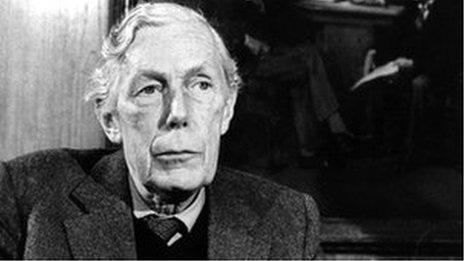Which Sirs have had their knighthoods taken away?
- Published
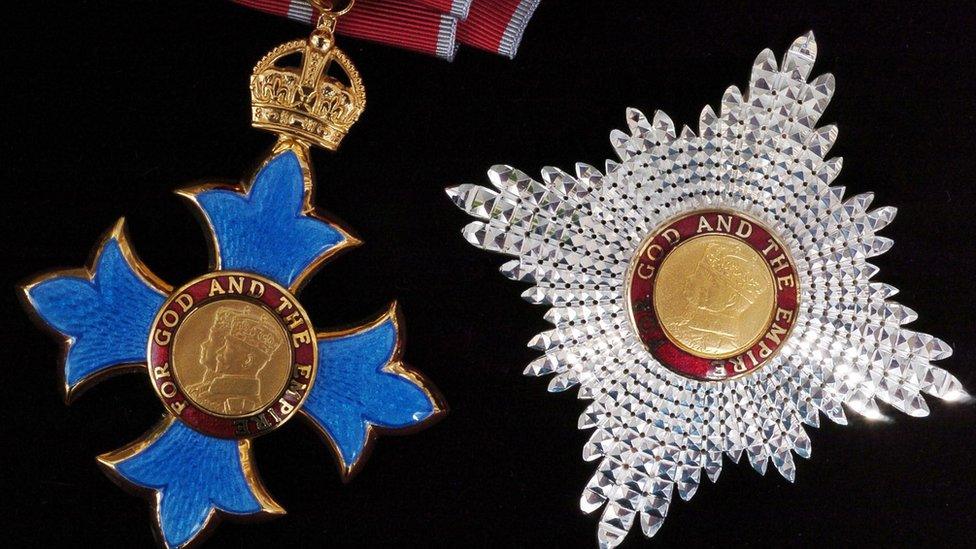
Who has been stripped of one of the highest British honours?
Becoming a knight is one of the highest honours bestowed in the UK and not one anyone plans on giving away - but history shows it does not always work out for the honourees.
If a recipient's subsequent behaviour does not uphold the title, the government will act, having the power to take the knighthood away and publish the decision in the London Gazette, external for all to see.
MPs have now backed calls for Sir Philip Green to be stripped of his honour after the collapse of BHS. If that happens, he would not be the first on the list that no Sir or Dame wants to join. We take a look at some of the highest profile falls from grace.
George Castledine
The most recent case of someone being stripped of their knighthood was a professor of nursing.
George Castledine was struck from the nursing register in 2014 after being found guilty by the Nursing and Midwifery Council of "sexually and financially motivated" misconduct.
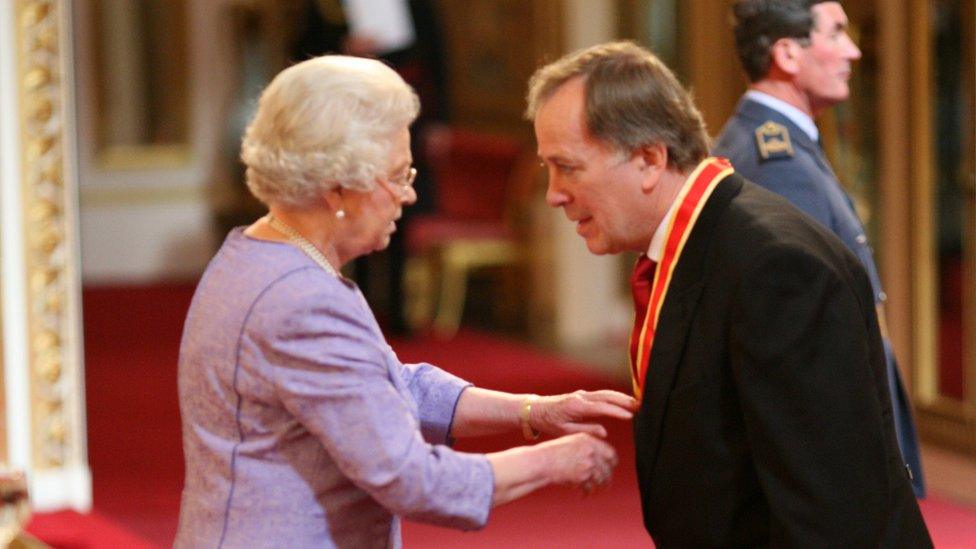
George Castledine was knighted by the Queen in 2007
He stood accused of giving an 83-year-old widowed patient flowers and taking her on trips to Wales when working as a centre manager for the Institute of Ageing and Health in Birmingham
Mr Castledine also visited her home at night, called her "my little Tinkerbell" and told her he had to go to the gym to keep fit or he "wouldn't be able to make love".
He admitted that he had not kept professional boundaries with the patient during a hearing in 2014, although he denied it was sexually or financially motivated.
A year later, Mr Castledine had his knighthood "cancelled and annulled".
Fred Goodwin
One of the most high-profile knighthoods to be removed was that of banker Fred Goodwin.
The former boss of the Royal Bank of Scotland was heavily criticised over his role in the bank's near-collapse in 2008 after overseeing the multi-billion-pound deal to buy Dutch rival ABN Amro in the height of the financial crisis.
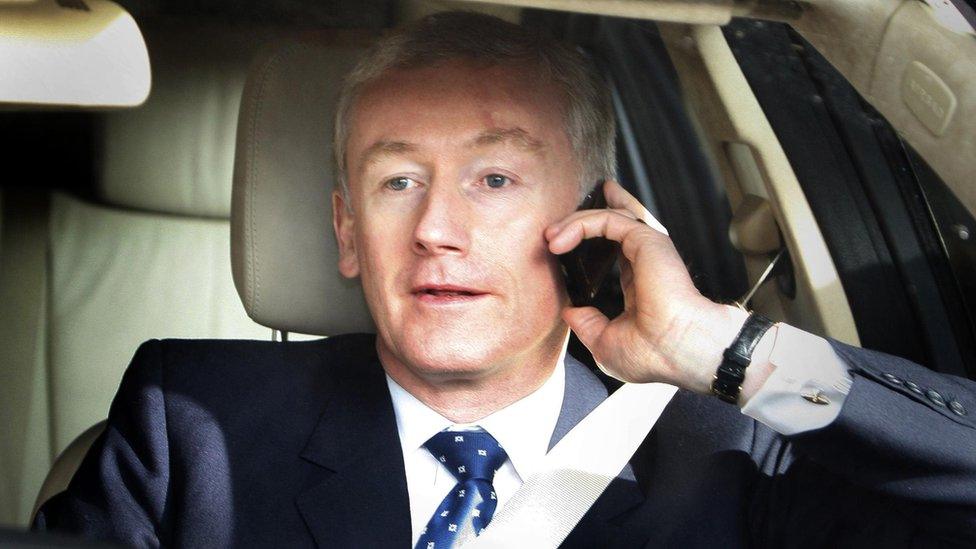
Fred Goodwin was the boss of the Royal Bank of Scotland during the banking crisis
The purchase led to RBS having to be bailed out by the government to the tune of £45bn of taxpayers' money.
This was followed by thousands of job losses and a much wider impact of the economy.
The Cabinet Office said the scale and severity of his actions made it "an exceptional case".
Mr Goodwin said he "could not be more sorry" for what had happened, but his knighthood was stripped in January 2012.
James Crosby
Mr Goodwin was not the only banker to lose his title following the financial crisis. But what was different about this knight was he asked for it to be taken away.
James Crosby was the former chief executive of HBOS between 2001 and 2006, which owned Halifax and the Bank of Scotland and was taken over by Lloyds.
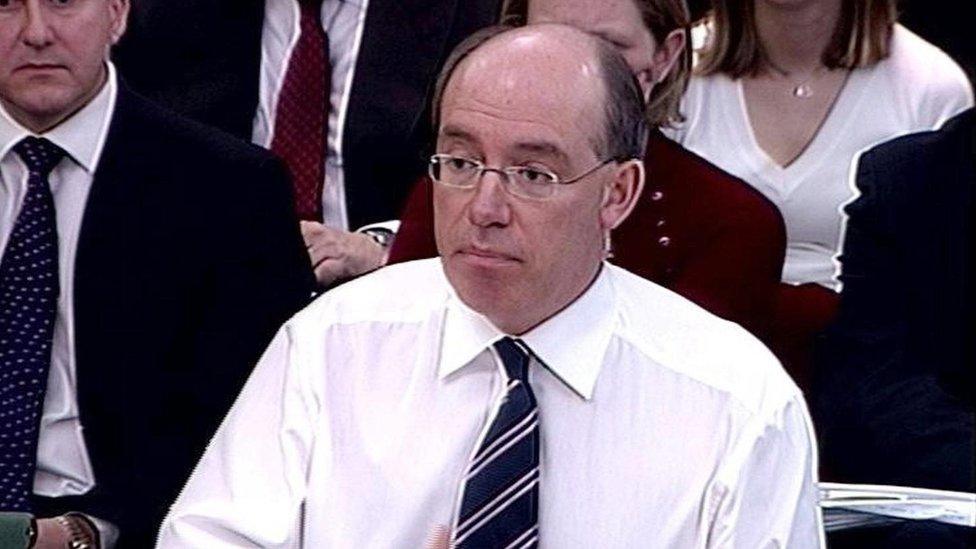
Mr Crosby said the Banking Standards Commission's report "made for very chastening reading".
But a highly critical report by the Banking Standards Commission in 2013 described him as the "architect" of the strategy that led to the firm's downfall.
The Commission estimated that 96% of shareholder value was wiped out when HBOS collapsed, costing taxpayers £20.5bn.
Mr Crosby said he was "deeply sorry" about what happened and in June 2013 requested to have his knighthood removed.
Jean Else
Women awarded this level of honour become Dames, but there is only one who has lost that title.
Jean Else, a former "super-head" at Whalley Range High School in Manchester, was celebrated for turning the school's fortunes around and was awarded the title in 2001 for services to education.
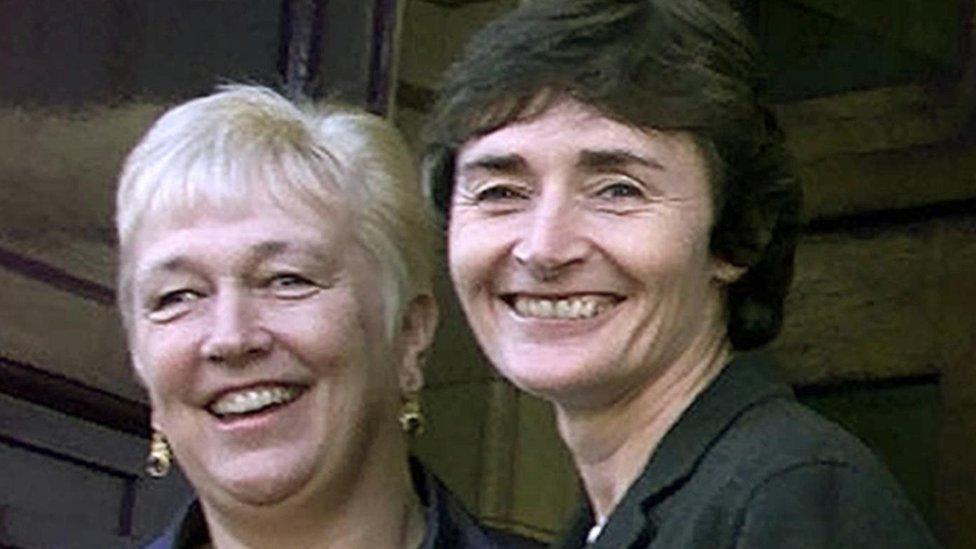
Jean Else (left) was celebrated by New Labour and its former education secretary Estelle Morris (right)
But a misconduct hearing in 2009 by the General Teaching Council found she had promoted her twin sister from a clerical assistant to assistant head.
The Council found her guilty of failing to observe minimum standards in recruiting and promoting staff at the school after failing to follow proper procedures in relation to 10 staff.
Ms Else was banned from running a school as a result and in 2011 her Damehood was revoked - believed to be the first time a woman has lost the title in history.
Alan Davies
Another former head teacher also saw his honour taken away after admitting to false accounting.
Alan Davies, who led Copland School in Wembley, London, was knighted in February 2000 for services to education.
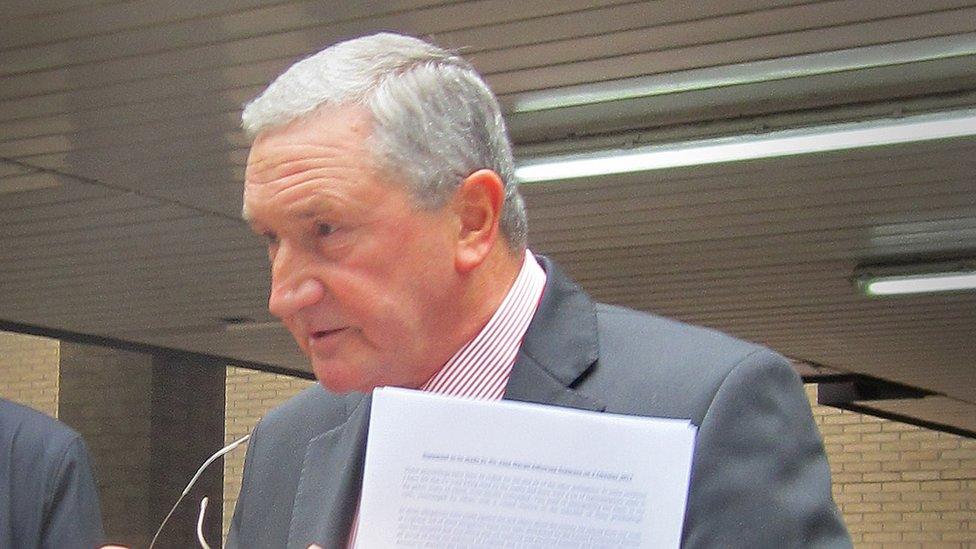
Alan Davies had been knighted for services to education
He had created eight back-payment documents at the same time, in relation to payments of more than £300,000.
Mr Davies was given a suspended jail term and in May 2014 his knighthood was taken away.
Home and abroad
There are a number of other times throughout history that well known figures have fallen foul of the honours system, from both the UK and abroad.
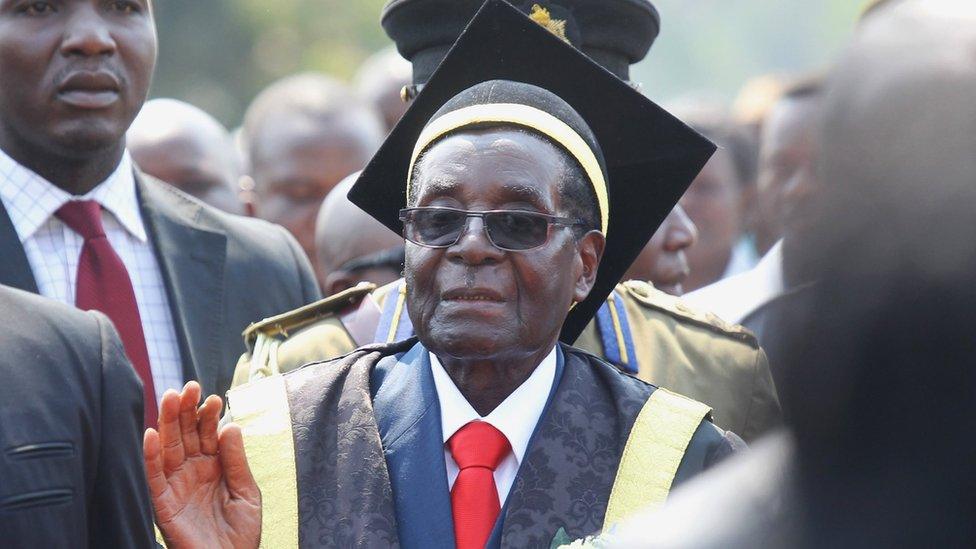
Robert Mugabe was given an honorary knighthood by the Queen in 1994
Former spy Anthony Blunt was stripped of his knighthood in 1979 for the treachery of supplying hundreds of secret documents to the Soviet Union while a wartime agent for MI5.
Jack Lyons, one of the so-called Guinness Four who were convicted in 1990 of illegally boosting the price of shares four years earlier, was stripped of his knighthood and fined £2.5m.
Joseph Jonas, the former Lord Mayor of Sheffield, was stripped of his knighthood in 1918 after being convicted of a misdemeanour, relating to contacts with a German a year before World War One.
And Irish-born colonial officer Roger Casement forfeited his honour when he was convicted of treason for aiding those involved in Ireland's 1916 Easter Rising and subsequently executed.
The Queen also annulled Zimbabwean President Robert Mugabe's honorary knighthood in 2008.
And both Italy's Fascist leader Benito Mussolini and Romanian dictator Nicolae Ceaucescu were also stripped of honorary knighthoods, in 1940 and 1989 respectively.
- Published20 October 2016
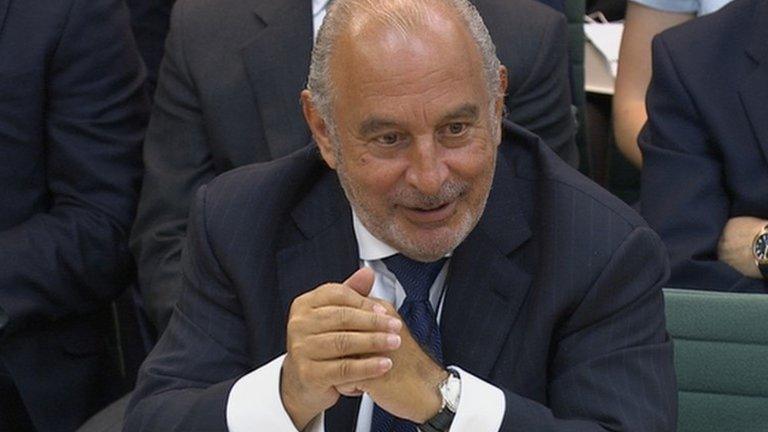
- Published28 August 2016
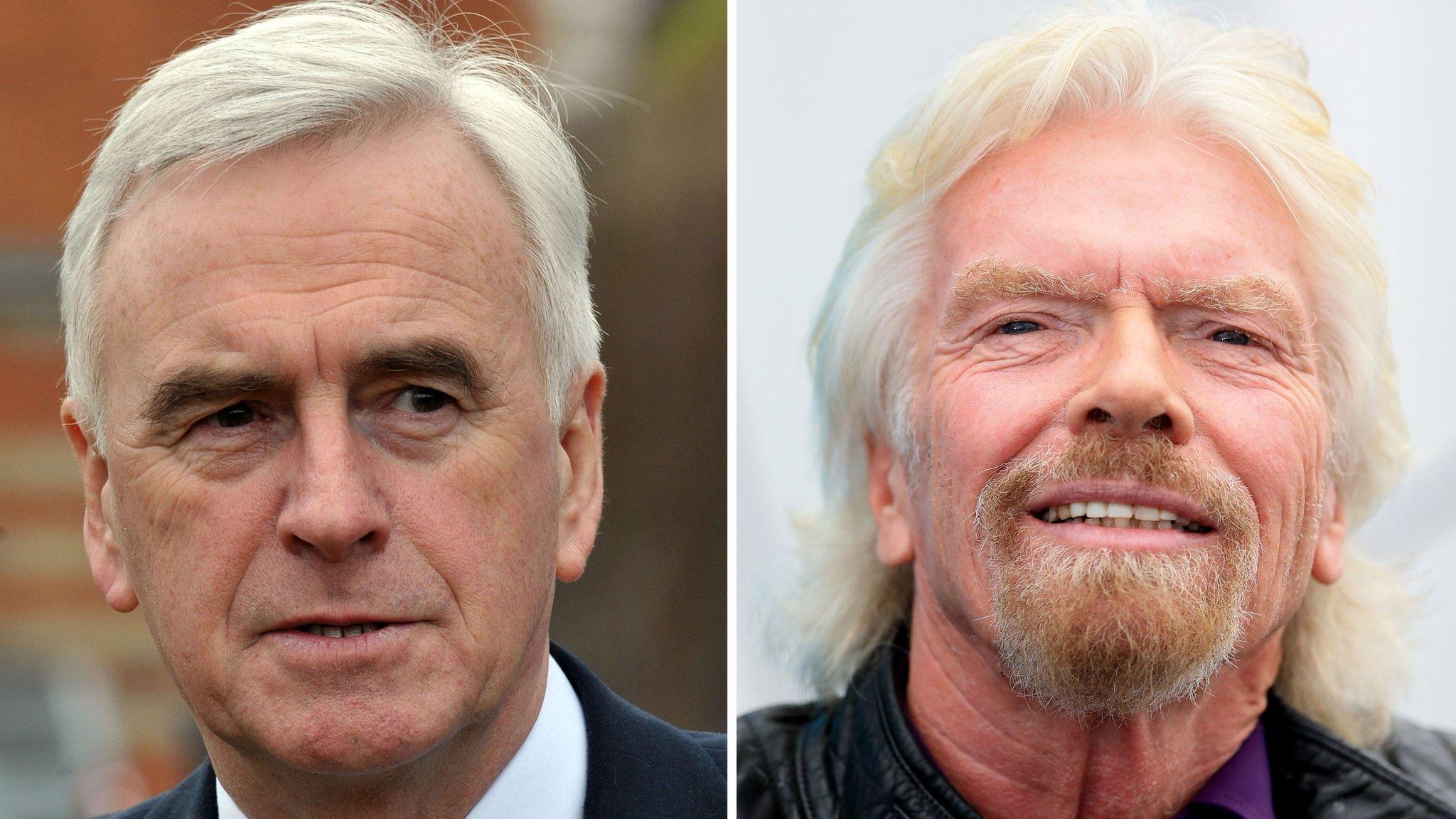
- Published11 October 2016
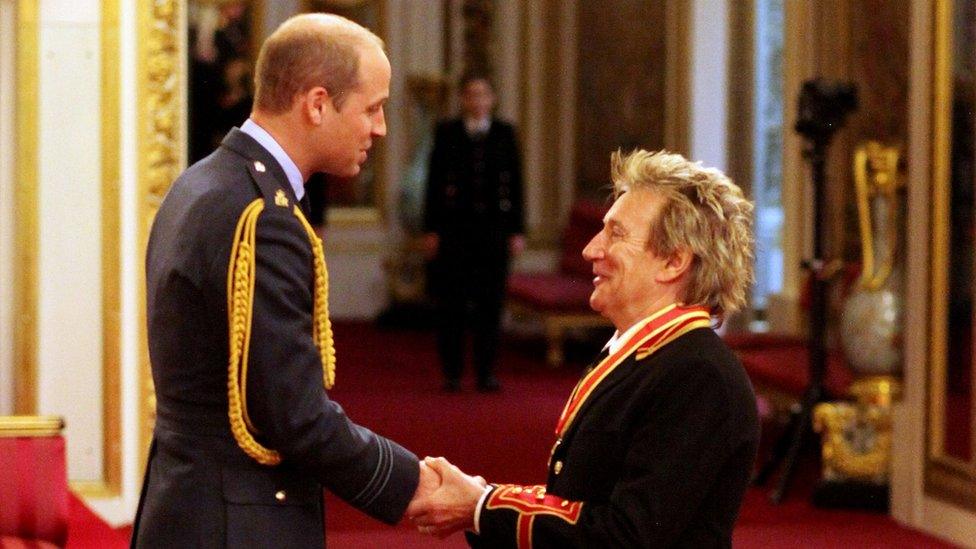
- Published31 January 2012
